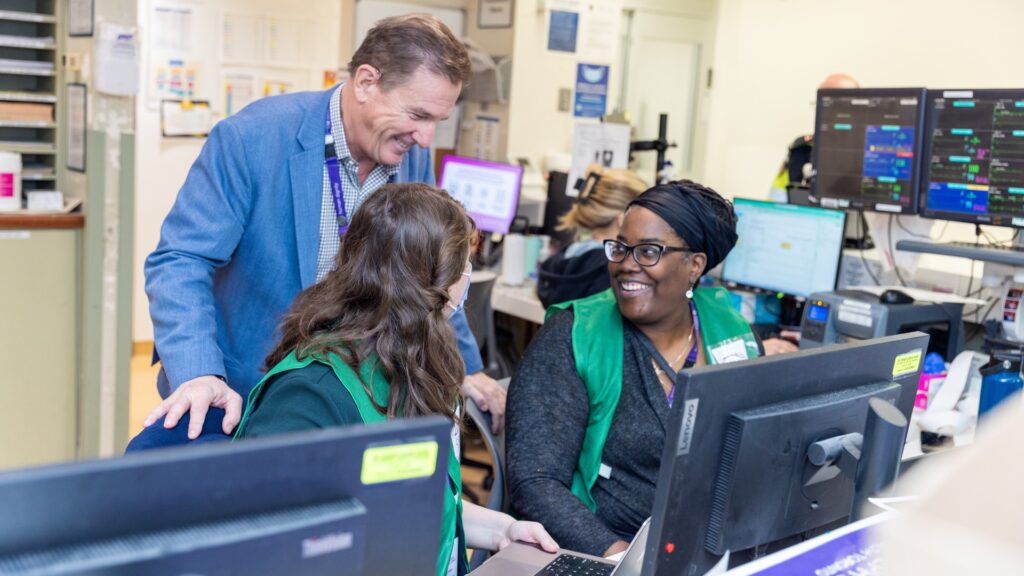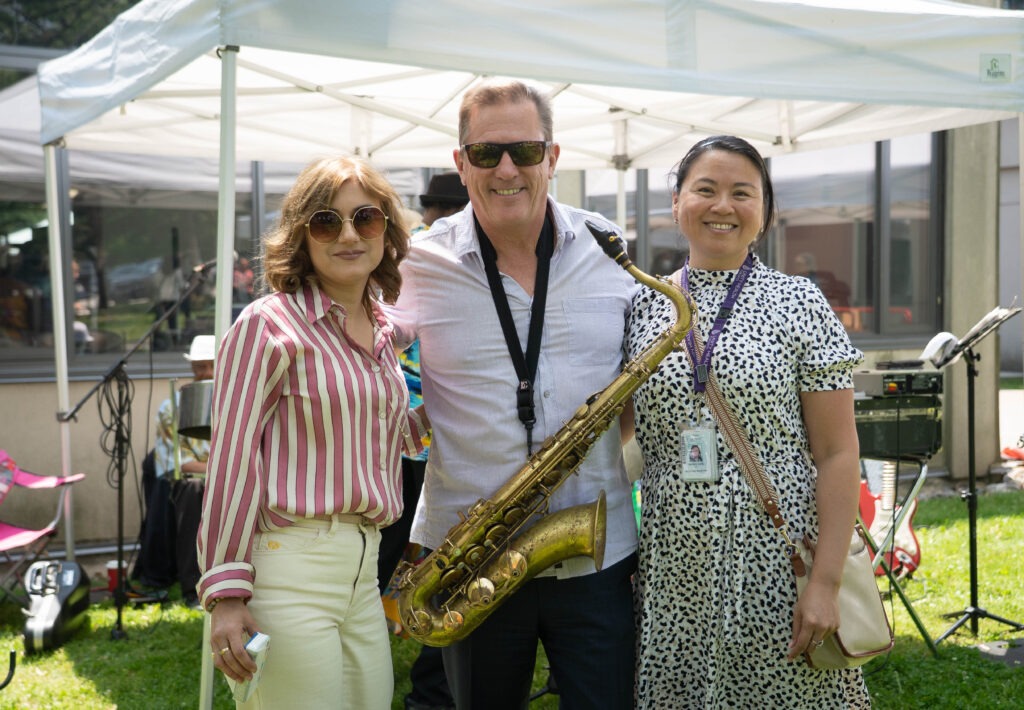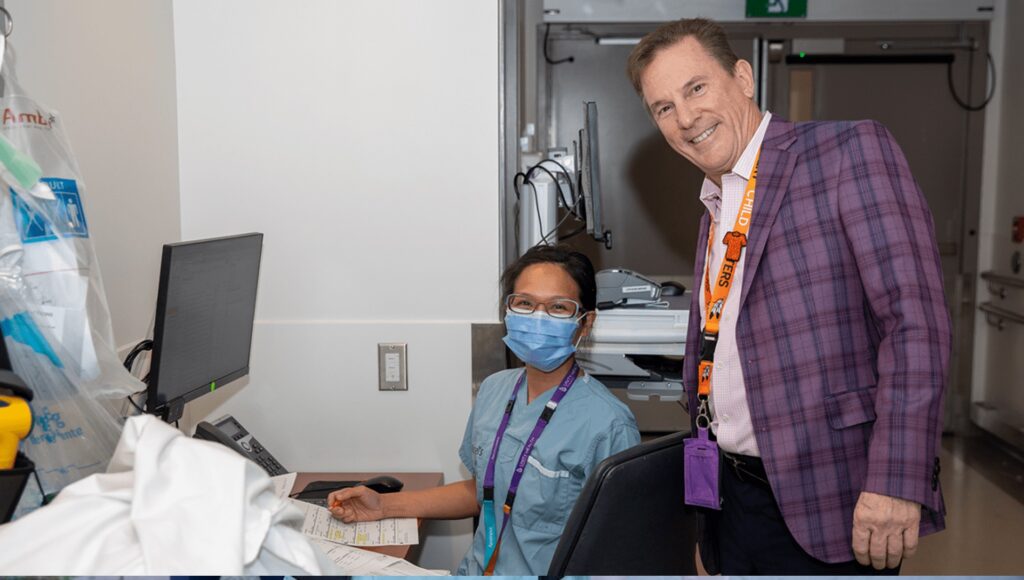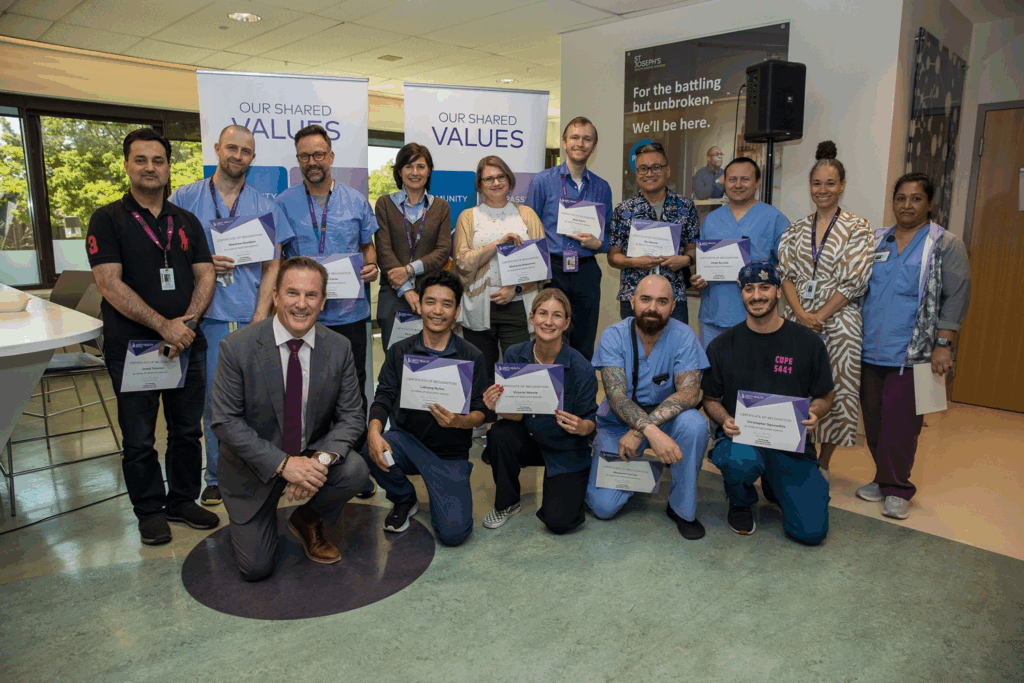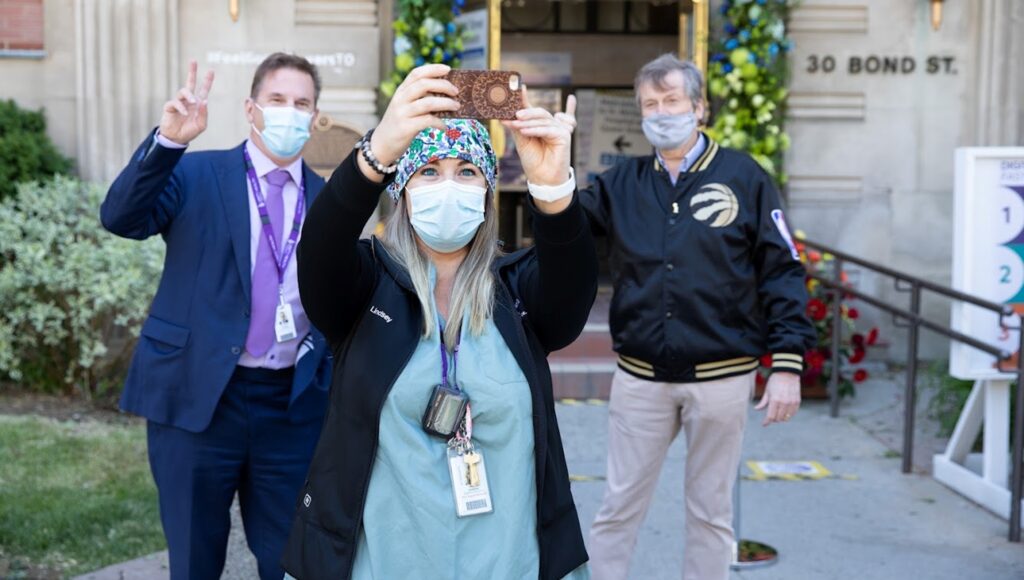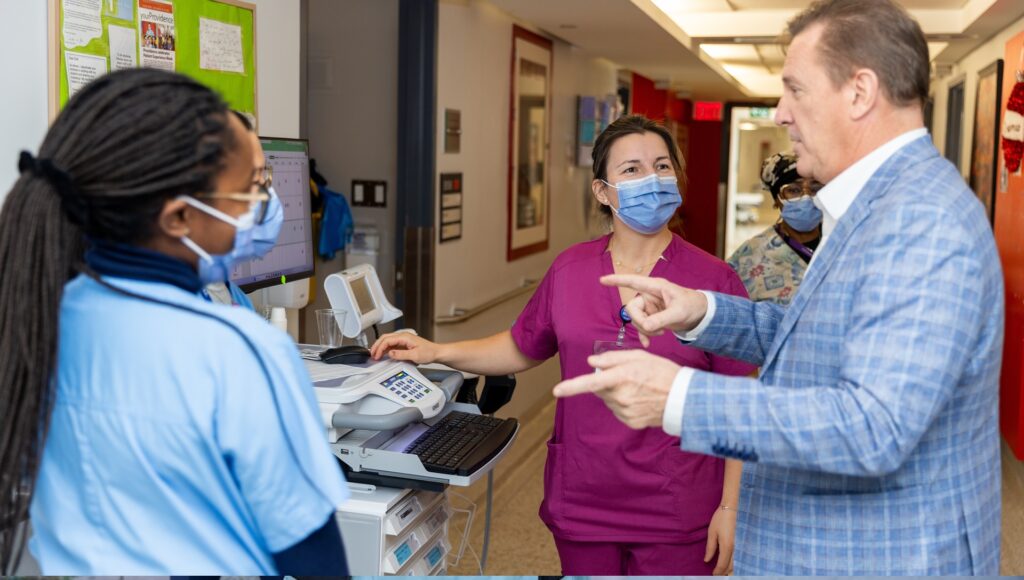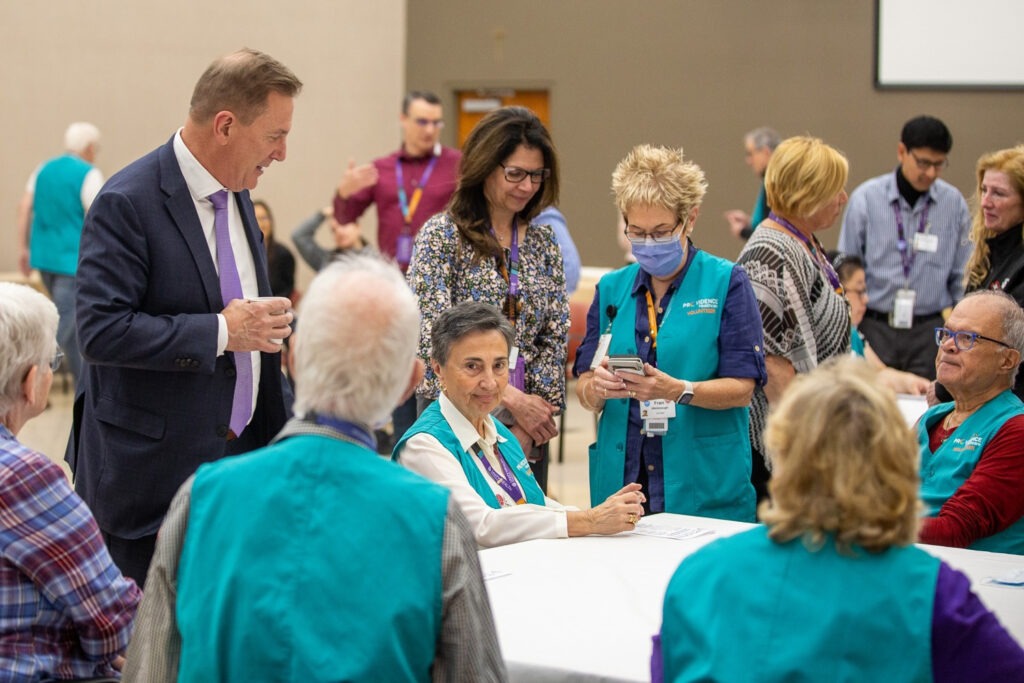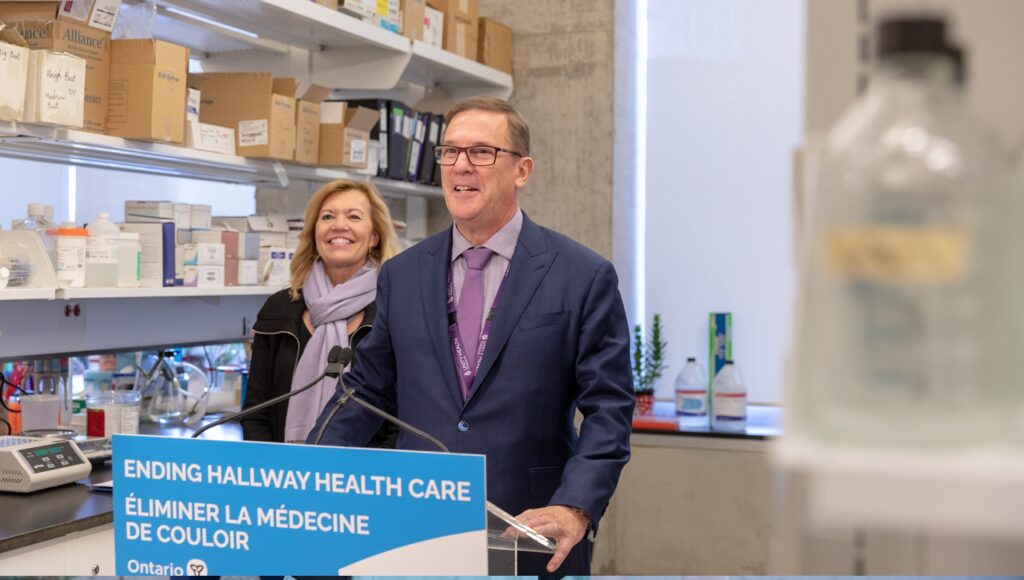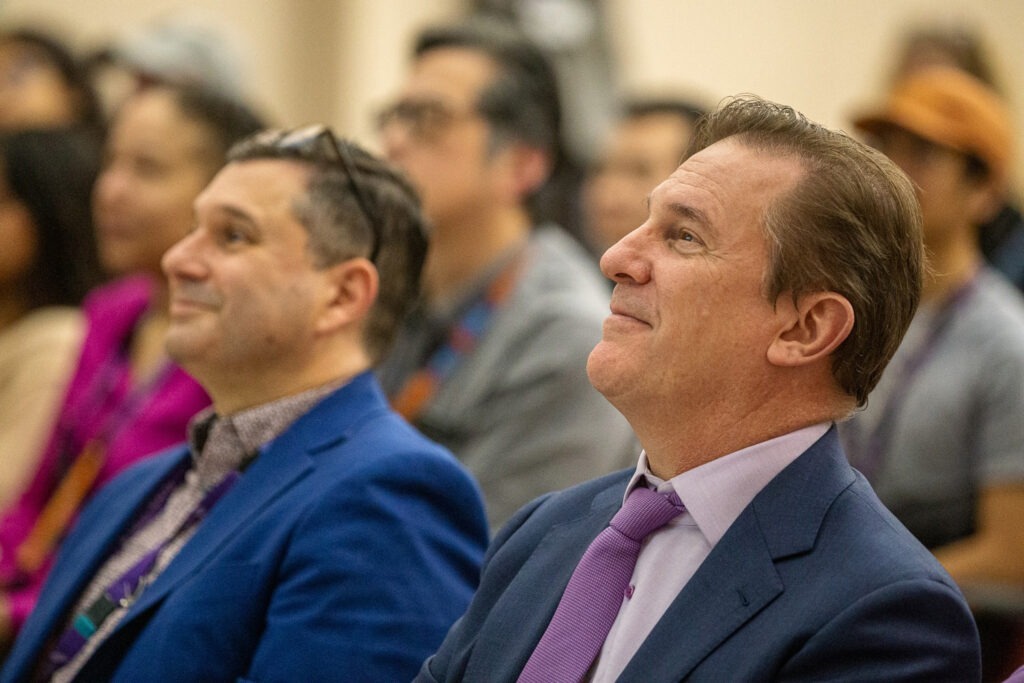Leadership as a Symphony: The Legacy of Dr. Tim Rutledge
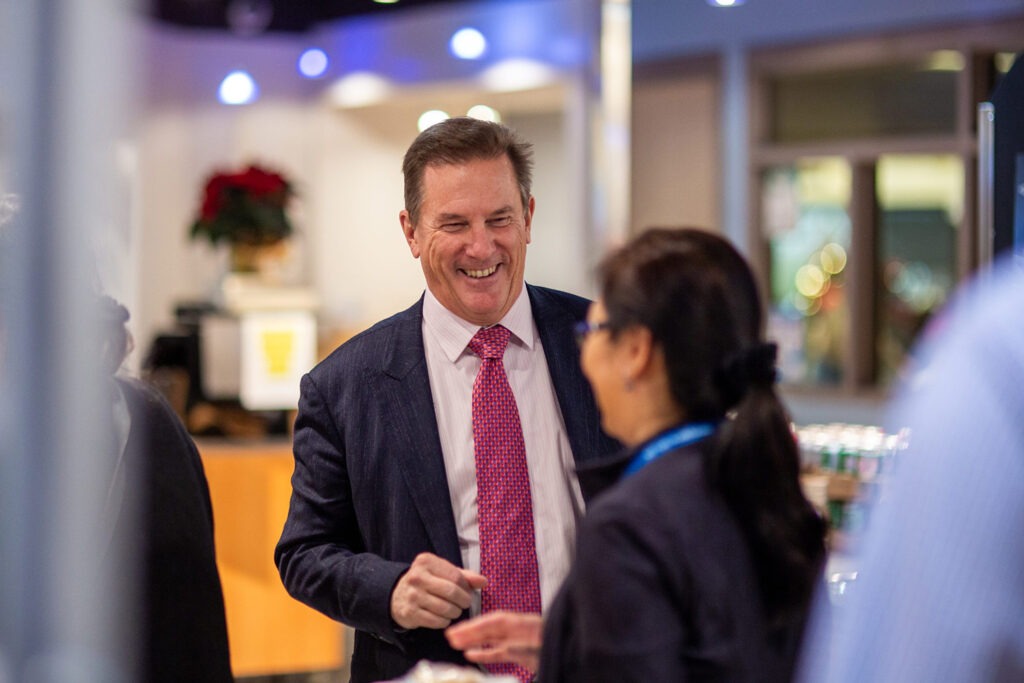
Like a composer guiding an orchestra, hospital CEOs balance many moving parts to lead a unified, harmonious organization. For Tim Rutledge—a lifelong musician—this wasn’t the path he originally envisioned.
“I’ve been a CEO for 15 years. If you’d asked me 15 years and one day ago if I wanted to be a CEO, I would’ve laughed,” he says.
Now, as he approaches retirement after seven years as President and CEO of Unity Health Toronto, Rutledge is reflecting on a career that carried him from life on the road with a saxophone to the highest levels of health care leadership. Through it all, his approach has been grounded in collaboration, team-building, and the courage to embrace discomfort in the pursuit of growth.
A Musical Beginning
Rutledge’s love of music began early. His father—a concert violinist before serving as a pilot in the Royal Air Force during the Second World War—filled their Scarborough home with music. Inspired by that atmosphere, Rutledge developed a passion for music that led him, in his late teens, on a year-and-a-half journey playing the saxophone on the road, touring internationally and performing with various bands.
But by the age of 19, he found himself at a crossroads. “For the first time in my life, I had a real crisis,” he recalls. “I started to picture my future – it was a kind of personal visioning – and I asked myself, what do I really want to do?”
What emerged was a deep sense of purpose – a desire to help others through healthcare. Despite no doctors in the family, Rutledge was drawn to medicine, possibly influenced by a close aunt who was a nurse and a trusted family physician.
He entered pre-medical studies at the University of Toronto in 1978 and completed his medical degree at U of T’s Faculty of Medicine in 1984. He was captivated by every part of medicine – surgery, mental health, and most especially emergency care. “When I did my first elective at the St. Joseph’s Health Centre Emergency Department, I immediately fell in love with it,” he says.
He began his career at Mount Sinai Hospital as a full-time emergency physician. There, he was inspired by Dr. Eric Letovsky and Dr. Howard Ovens, whose collaborative leadership style and passion for excellence left a lasting impression.
Rutledge quickly became a champion for emergency medicine education. At the time, medical students had little exposure to the specialty. For three years, he advocated for change, and in 1995, emergency medicine was added to the final-year curriculum at U of T. He led the team that developed the course and served as its inaugural director for six years. For this, he received the Aikins Award for Course Development.
His first formal leadership role came at North York General Hospital as Chief of Emergency Medicine and Program Director. There, he fostered a culture of collaboration and inclusion. “I was never a power guy. It was about inspiring hearts and minds,” he says.
His philosophy was simple: engage people and ask, “What can we do together?” Under his leadership, the department grew into one of the top places to study emergency medicine and became home to one of Canada’s most respected conferences in the field.
During the SARS crisis in 2002, while serving as Chair of the Medical Advisory Committee, Rutledge’s leadership was tested. “It was an incredibly difficult time – many of our staff got sick, and one of our beloved nurses died from SARS,” he recalls. “I learned a lot about leadership in crisis.”
In 2010, he became President and CEO of North York General Hospital, continuing to champion inclusive leadership and system improvement.
A New Movement: Unity Health Toronto
After several years at NYGH, Rutledge was approached about a new challenge – leading the integration of three Toronto hospitals into a single, Catholic healthcare network: Unity Health Toronto.
He was initially a bit reluctant when a friend said, “Tim, from what I hear, you’re really comfortable.” Rutledge recalls, “That was all he needed to say. I’ve always believed that once you’re comfortable, it’s time to stretch again.”
Unity Health was more than a merger. It was an opportunity to build something new from shared values. Rutledge was struck by how similar the three hospitals were – all founded by the Sisters of St. Joseph of Toronto, all deeply committed to compassionate care.
He and the leadership team worked to harmonize the mission and values across all sites. Passion, excellence, compassion, and human dignity were already deeply rooted. But during the integration, a new value came into focus: inclusivity.
“We heard a clear message from staff and communities – inclusivity needed to be one of our core values,” Rutledge says. It became a living commitment to serving patients, staff and communities of all backgrounds with equal care and respect.
Rutledge took time to understand each hospital’s culture and invited staff to help shape the new organization. He believed leadership meant listening and co-creating a future with shared purpose. “The name ‘Unity’ speaks to that togetherness – being one with each other, with our patients, and with the value of inclusivity.”
He also introduced the concept of ‘care experience’ – a more holistic approach that extended beyond outcomes and safety to how care truly feels for patients, families and providers.
Rutledge’s values-based leadership guided Unity Health through some of its most defining moments, including the COVID-19 pandemic and the implementation of a new Electronic Patient Record system. His presence during the 3 a.m. go-live of the EPR exemplified his hands-on approach. He led by standing alongside staff, not above them.
And through it all, his saxophone was never far away – whether playing “Silent Night” during the pandemic or bringing joy to staff events. Music remained a powerful symbol of connection, joy, and human-centered leadership.
Final Coda
As he prepares to retire, Rutledge reflects with deep gratitude – for the mentors who guided him, the teams who shared his vision, and the patients who entrusted their care to Unity Health.
“Everyone is a leader,” he says. “Everyone has the ability to contribute to an organization.”
For Rutledge, leadership has always been a symphony – a balance of listening, guiding, and bringing people together to create something greater than the sum of its parts.

